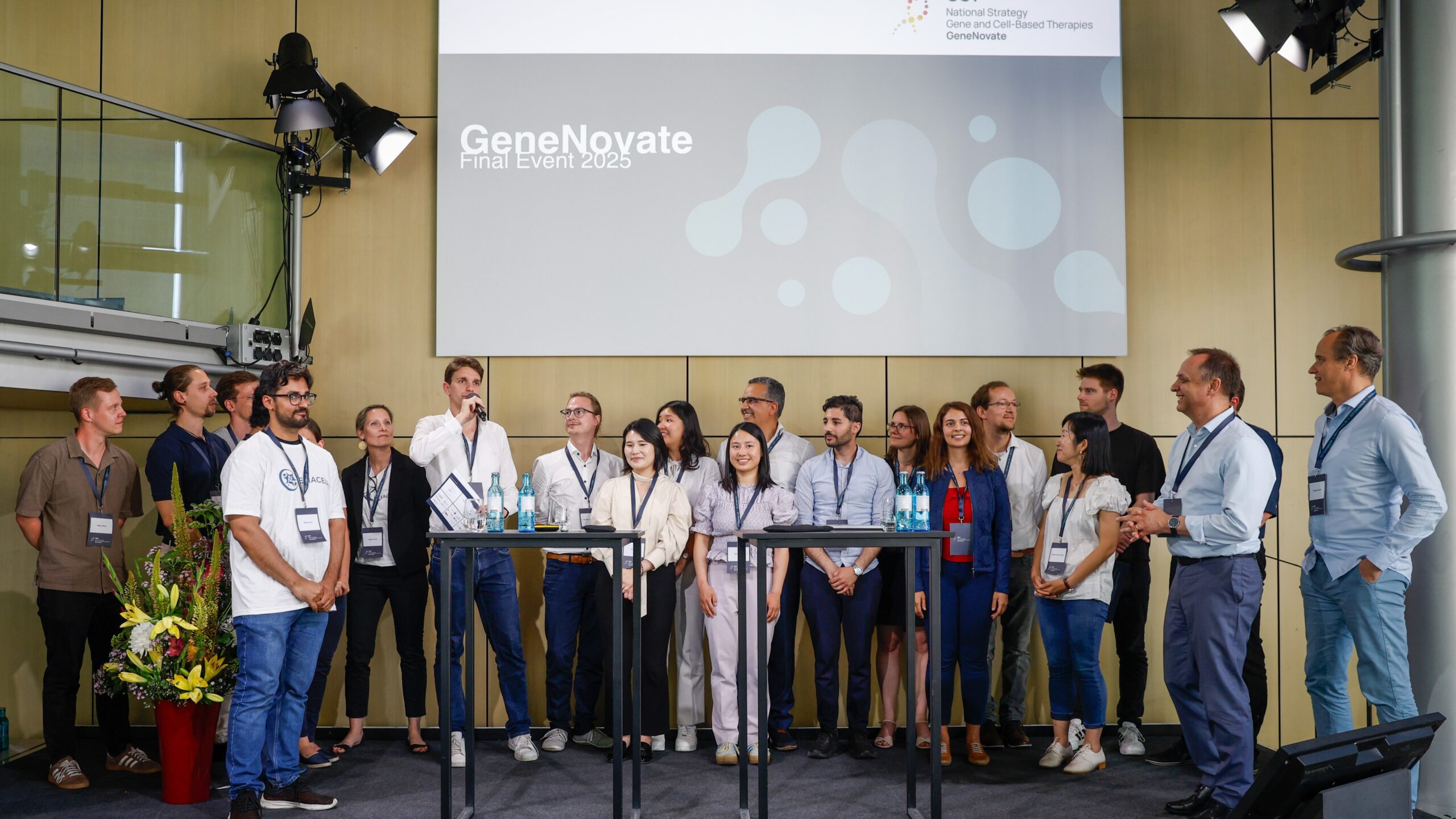Interdisciplinary research to provide urgently needed insecticides to combat malaria

The Medical Faculty Heidelberg of Heidelberg University and Mannheim University of Applied Sciences are combining their expertise in infectious disease research, mass spectrometry, and bioinformatics to overcome resistance in malaria vectors. The project is supported by funding from the Gates Foundation.
Mosquito nets treated with insecticides are the most effective measure for preventing malaria. However, malaria control is at risk because mosquitoes are increasingly resistant to the chemicals used here. New active ingredients that specifically attack the malaria-transmitting Anopheles mosquito are difficult to find. That is why Dr. Victoria Ingham, Junior Professor of Translational Parasitology at the Medical Faculty Heidelberg of Heidelberg University, based at the Center for Infectious Diseases at Heidelberg University Hospital (UKHD), and Dr. Carsten Hopf, Professor of Bioanalytics and Drug Discovery at Mannheim University of Applied Sciences and member of the Translational Neuroscience Research Focus at Medical Faculty Mannheim of Heidelberg University, are now pursuing a new approach. They are combining their expertise in the biology of the Anopheles mosquito, mass spectrometry imaging and bioinformatics to discover and tailor-made new insecticides. Their technology development is funded by the Gates Foundation with 2 million EUR as part of an international collaborative network.
The fight against malaria is a race against resistance to insecticides
The development of resistance to insecticides in the group of pyrethroids, which are used to treat standard nets, is a particular concern for the World Health Organization (WHO). The less successful this form of widespread and cost-effective malaria control is, the more malaria will increase again. For the last two years, the new generation of nets, to which another insecticide is applied, have been increasingly used. However, since resistance is also to be expected here over time, it is important to have new, effective insecticides that are harmless to humans and other creatures ready to be applied to nets indoors.
The search is hampered by the fact that many insecticides come from the agrochemical industry. These chemicals, which are used to control insects that damage plants, are usually water-soluble and are absorbed by insect pests through their digestive tract. The situation is different for contact insecticides coated on nets: the Anopheles mosquitoes take up the insecticides through their cuticle, their outer shell that protects and supports the animal, when they land on the net with their legs. Because the cuticle contains waxy substances, it repels water and thus makes it more difficult for water-soluble active ingredients to penetrate.
The availability of a wider range of insecticides should protect against resistance
“We urgently need novel methods to identify specific insecticides for Anopheles that can cross the cuticle and distribute in the mosquito’s tissue,” emphasizes Victoria Ingham. Ideally, the different agents would have to be alternated repeatedly so that mosquitoes would have no chance of developing resistance to them. In her collaboration with Carsten Hopf, Victoria Ingham sees the potential to develop a technology that can be used to find and produce novel active ingredients. To this end, Ingham is breeding Anopheles mosquitoes, including those that are resistant to conventional insecticides. She is studying the resistance mechanisms and possible targets for new active ingredients in the cells of these mosquitoes. Carsten Hopf uses mass spectrometry imaging and bioinformatics to visualize the composition and properties of the insecticides and their spatial distribution in the tissues. Together, the two experts can deduce where the chemicals need to be modified so that they can be better absorbed and eliminate the insect. The production of new insecticides based on these scientific findings is then to be tackled by Dr. David Hong, a medicinal chemist at the University of Liverpool.
New Technology made in the Life-Science region Heidelberg – Mannheim
Our collaboration is focused on technological development,” says Carsten Hopf. In Heidelberg and Mannheim, the Gates Foundation is funding the establishment of an interdisciplinary team for an initial period of three years. The application was based on work by Jun.-Prof. Ingham and Prof. Hopf, which was supported by the innovation campus Health and Life Science Alliance Heidelberg Mannheim.
In the current report on the global malaria situation, the WHO estimates that 2.2 billion malaria cases and 12.7 million deaths have been avoided since 2000 as a result of control measures. However, the disease remains a serious threat to global health, particularly in Africa. In 2023, the WHO estimates there were 263 million cases and 597,000 deaths worldwide. The disease, which is arguably the most dangerous infectious diseases in the world, mainly kills children under the age of five.
Weitere Informationen im Internet
Ingham research group at the Center for Infectious Diseases at UKHD
CeMOS research and transfer center an der Technischen Hochschule Mannheim
Innovation campus Health and Life Science Alliance Heidelberg Mannheim
Literature
Böhmert AL, Rhiannon AE, Portwood NM, Hartke J, Ingham V. A descriptive review of next-generation insecticide-treated bed nets for malaria control. Front Malar. 2024;2 doi: 10.3389/fmala.2024.1337572
Ingham, VA, Grigoraki, L and Ranson, H (2023) ‘Pyrethroid resistance mechanisms in the major malaria vector species complex’. Entomologia Generalis, 2023. doi: 10.1127/entomologia/2023/1880
Schulz S, Becker M, Groseclose MR, Schadt S, Hopf C. Advanced MALDI mass spectrometry imaging in pharmaceutical research and drug development. Curr Opin Biotechnol. 2019 Feb;55:51-59. doi: 10.1016/j.copbio.2018.08.003
Contact
Jun.-Prof. Dr. Victoria Ingham
Medical Faculty Heidelberg
Heidelberg University
Department of Parasitology
Center for Infectious Diseases
Heidelberg University Hospital
Email: victoria.ingham@uni-heidelberg.de
Prof. Dr. Carsten Hopf
Center for Mass Spectrometry and Optical Spectroscopy (CeMOS)
Mannheim University of Applied Sciences
E-Mail: c.hopf@hs-mannheim.de




